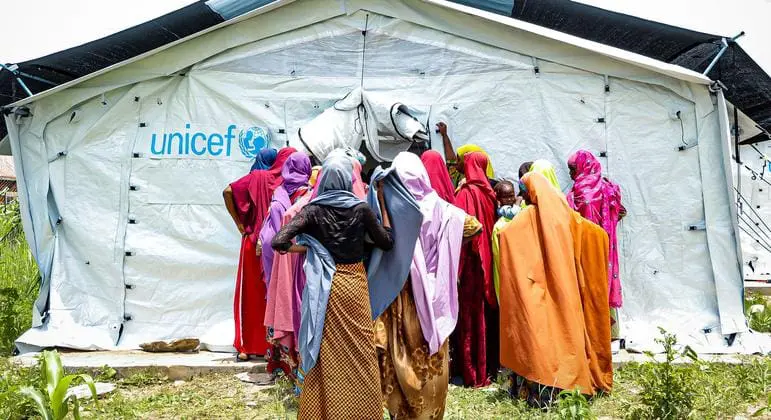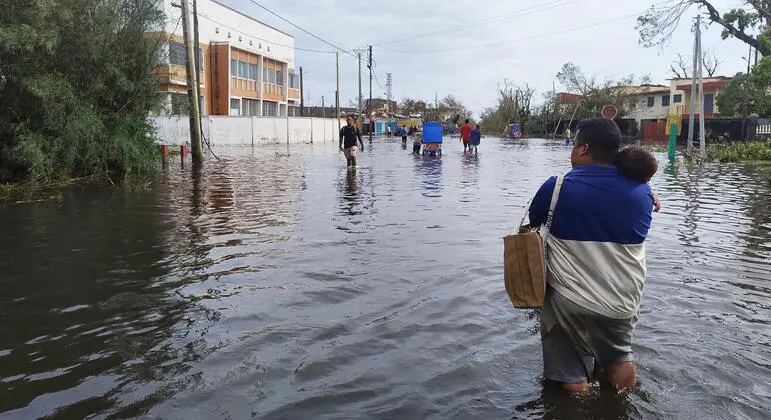The figure represents a sharp increase from the 25 million who need assistance today, the World Food Programme (WFP) said in a joint statement alongside the Food and Agriculture Organization (FAO) and the UN Children’s Fund (UNICEF).
“Never before have there been so many people in Nigeria without food,” Chi Lael, WFP Spokesperson for the country, told journalists at the UN in Geneva.
Avert potential disaster
A recent assessment found that immediate support is needed to avert a potential food and nutrition disaster in the face of triple-digit increases in food prices, the aftermath of devastating floods, and 15 years of insurgency in the northeast.
Nigeria faces a monumental hunger crisis in the second half of 2025, particularly in the northeastern states of Borno, Adamawa and Yobe, home to some five million people who are facing acute food insecurity.
Other areas including emerging hunger hotspots in Zamfara, Katsina, and Sokoto states are also at risk.
Young lives at risk
Ms. Lael said 5.4 million children and 800,000 pregnant and breastfeeding women face the threat of acute malnutrition or wasting.
She warned that of this number, an alarming 1.8 million children could suffer severe acute malnutrition and may require critical nutrition treatment.
“What worries us most is the speed of deterioration over the past year, the scale – in terms of number of people at risk, the geographic scope of food insecurity, and the very real risk of a significant worsening in the coming months,” she said.
Stem this crisis
She stressed the need for “immediate and massive” collective response that spans prevention, mitigation and life-saving assistance.
This includes preventative action in rural areas to halt hunger from spreading, such as providing vulnerable farmers with cash, seeds and fertilizer. Meanwhile, urgent assistance in areas such as nutrition, health support, food supply and water and sanitation will reduce the depth of the crisis.
“We have it within our grasp to stem this crisis, and avert catastrophe in Nigeria. If we respond now, it is manageable, at full stretch, but it can be done,” she said.







